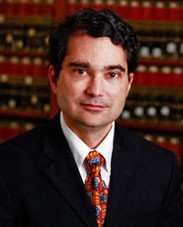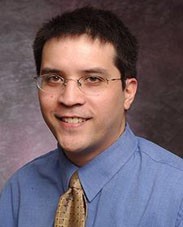Integrating Spaces: Property Law and Social Identity, Second Edition
Integrating Spaces: Property Law and Social Identity, Second Edition
Buy a new version of this textbook and receive access to the Connected eBook on Casebook Connect, including lifetime access to the online ebook with highlight, annotation, and search capabilities. Access also includes an outline tool and other helpful resources. Connected eBooks provide what you need most to be successful in your law school classes.
Integrating Spaces: Property Law and Social Identity, Second Edition, provides a dynamic social, historical, and doctrinal context for understanding property law. With historical perspective and doctrinal analysis, it maps the directions in which property law has turned in response to issues of race and ethnicity, and demonstrates how racial and ethnic categories continue to affect contemporary property law.
New to the 2nd Edition:
- New frames to understand the relationship of property law and social identity: social identity, dispossession, disruption and reordering, place, space and social identity, and repair.
- A wider range of social identities, including race, gender, sexual orientation, marital status, and citizenship status.
- New material to the Black Lives Moment including material on debates over memorials, reparations, and transportation.
- New material on the Asian-American experience related to property law including the migration of Asian-Americans, the barriers to property ownership for Asian-Americans, and citizenship status for Asian-Americans.
- Expanded discussion of Native American and tribal identity, including a consideration of the status of Native Hawaiians, and the status of Black members of tribal entities.
- Comparative and international law materials in property law including Haiti, South Africa, the European Union, and Australia.
- Different approaches to social identities, including critical race theory, progressive property theory, and social and political history.
- New material on neighborhood, space and place, including material related to highway expansion and blight.
Benefits for instructors and students:
- A rich selection of cases that explore the relationship between citizenship, social identity, status, and property interest, including Dred Scott v. Sandford, United States v. Singh, and Oyama v. California.
- A critical look at how the law of dispossession was shaped by contact and conquest of Native Americans and enslavement of Black people, and the efficacy and fairness of traditional property concepts as applied to minority or cultural requirements:
- An exploration of how reorganization of property systems facilitates both social disruption and reordering, including The Haitian Constitution of 1801 and Moore v. Cleveland
- A consideration of how property law can be used to rectify or repair currently existing inequality, including removal of statutes, land partition, and recent responses to Black Lives Matter
- Insightful analysis of federal civil rights statutes and their implications for environmental justice, housing, and civil rights law through the “space” of neighborhood.
- Statutory interpretation, provocative scholarship, and discussion questions that fuel legal inquiry and promote class discussion.
Product Information
Integrating Spaces: Property Law and Social Identity, Second Edition
Connected eBook + Paperback
Integrating Spaces: Property Law and Social Identity, Second Edition
Connected eBook (Digital Only)
Integrating Spaces: Property Law and Social Identity, Second Edition
LLPOD

